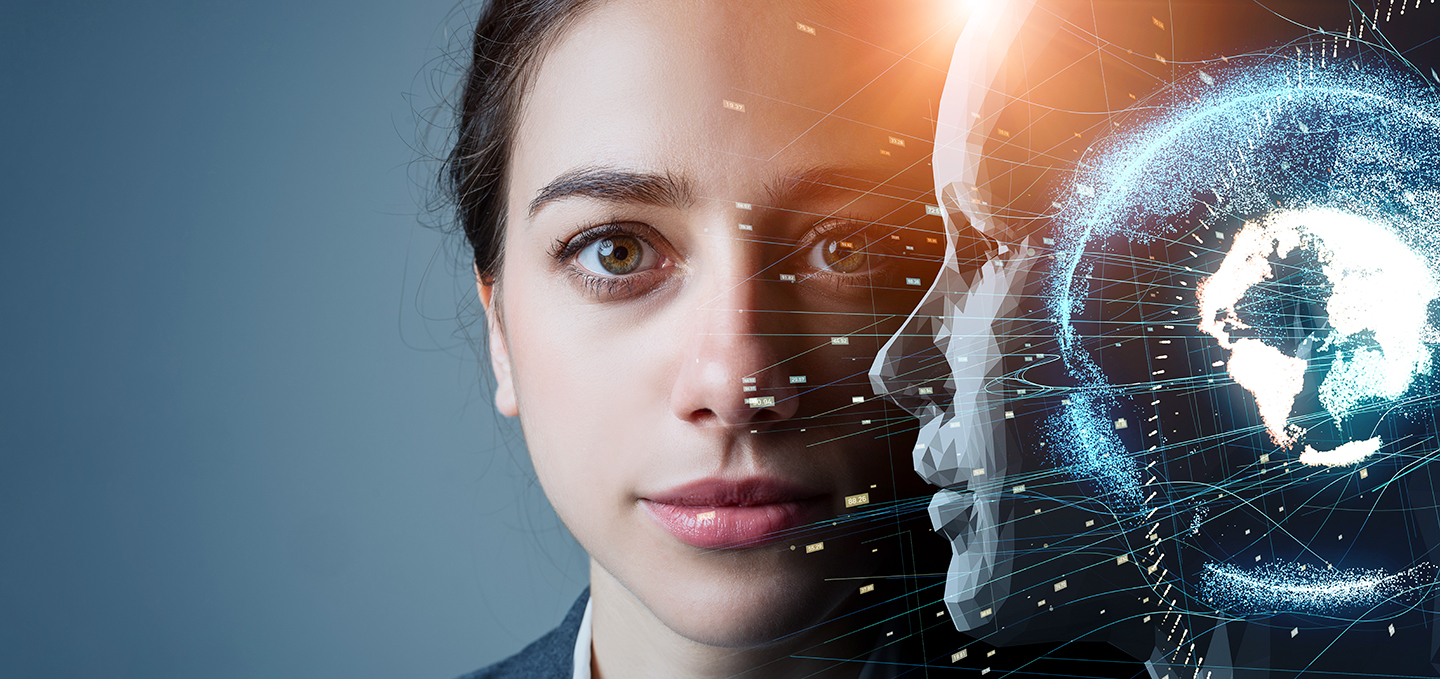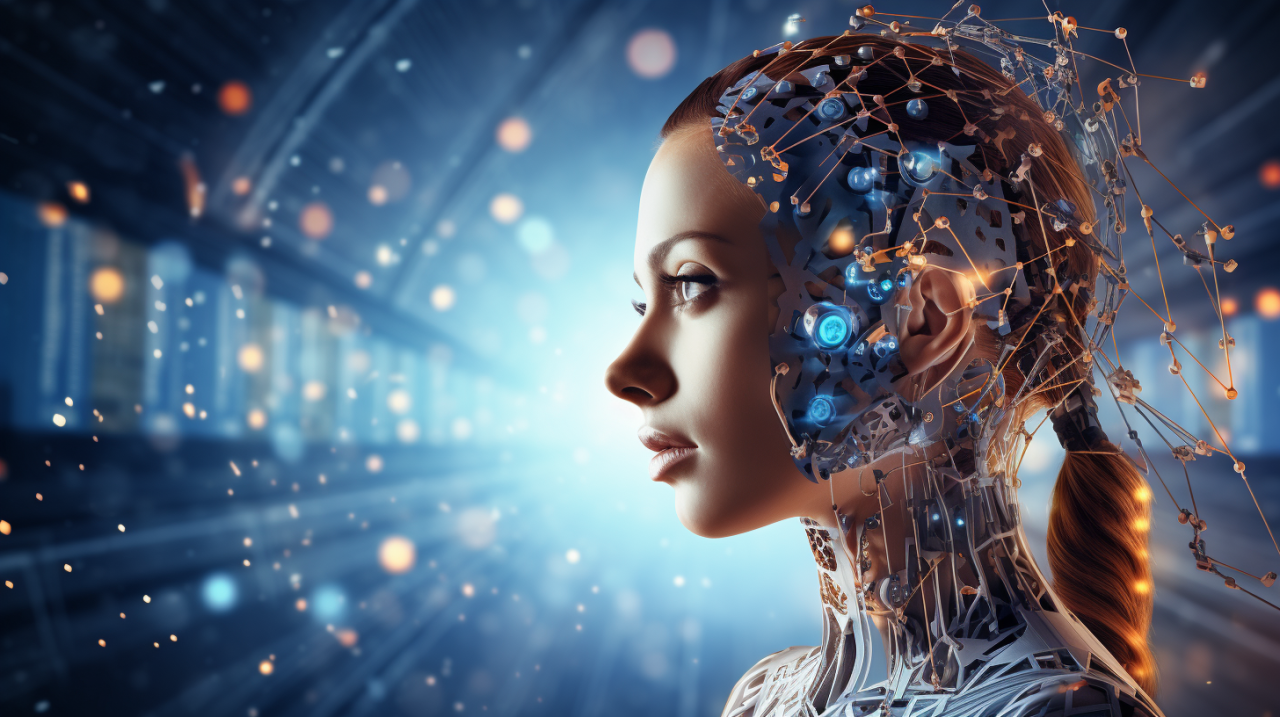From Information to Creative Thinking: Discovering the Influence of Generative AI in the Area of Expert System
Man-made knowledge (AI) has actually reinvented many markets, from health care to finance, by leveraging data-driven formulas to reveal useful insights. However, the potential of AI goes much past simple data evaluation. With the introduction of generative AI, a new period is arising, one that explores the intersection of information and imagination. This exciting growth holds extensive implications for the area of expert system, as it promises to change not only just how we comprehend and utilize information, however also just how we approach the imaginative procedure. By utilizing the power of generative AI, we can open the capability for machines to produce original and creative content. In this conversation, we will look into the influence of generative AI in the realm of artificial knowledge, examining its prospective to revolutionize imaginative industries, promote human-computer collaboration, and elevate vital honest factors to consider. Join us as we discover the interesting trip from information to creative thinking, and discover the extensive impact generative AI can carry the future of expert system.
The Surge of Generative AI
Generative AI has actually become a revolutionary area in synthetic knowledge, changing the way makers generate brand-new material and connect with the world. Recently, there has been a considerable surge in the popularity and application of generative AI techniques. These strategies make it possible for machines to autonomously create one-of-a-kind and new content, such as images, songs, and text, without explicit human input.
Among the key elements adding to the surge of generative AI is the availability of varied and huge datasets. With the introduction of the net and the proliferation of electronic web content, vast quantities of data are currently available to AI systems. This wealth of data supplies the needed raw product for training generative AI designs, enabling them to learn and imitate human creative thinking.

Moreover, the raised computational power and the availability of specialized hardware, such as graphical handling devices (GPUs), have actually played an important function in the surge of generative AI. These innovations have empowered AI systems to process and assess large amounts of data, enabling them to produce material swiftly and efficiently.
Transforming Creative Industries
The expanding capacities of generative AI, sustained by innovations in deep understanding formulas and computational power, have actually brought about a transformative effect on creative markets. This innovation has transformed the way creative professionals function, opening brand-new opportunities and pressing the borders of human creativity.
Generative AI has allowed artists to explore brand-new realms of creative thinking by providing them devices that can produce distinct and unique web content. In the field of visual arts, generative AI formulas can examine existing artwork and generate brand-new pieces based on the design and features of the input. This not only conserves time yet likewise expands the imaginative possibilities, allowing musicians to explore various styles and strategies.
In the songs industry, generative AI has additionally had a considerable impact. It can make up new melodies and consistencies, producing songs that was previously inconceivable. This technology can also mimic the design of popular artists, allowing the creation of new tunes that sound like they were made up by musicians who have actually lengthy passed away.
Moreover, generative AI has located applications in other imaginative fields, such as fashion and style. It can create new garments layouts, interior designs, and building principles, providing designers with a riches of ideas and accelerating the creative process.
Nevertheless, while generative AI supplies exciting chances, it likewise increases moral inquiries and challenges conventional concepts of authorship and imagination. As this modern technology remains to develop, it is essential to strike a balance in between human creative thinking and the capacities of AI, ensuring that the final outcome shows the objectives and creative vision of the human designer.
Enhancing Human-Computer Partnership
Partnership in between people and computer systems is being improved through the integration of generative AI, resulting in a new era of creative opportunities. With the advancements in expert system, human beings are currently able to work closely with computer systems to attain end results that were formerly unthinkable. Generative AI, a subset of AI that concentrates on creating brand-new material, has revolutionized the means human beings and computer systems collaborate.
Generative AI enables computer systems to produce content, such as images, songs, and text, based on instances and patterns offered by humans. This cooperation enables humans to leverage the computational power of AI systems to boost their innovative processes. As an example, musicians can utilize generative AI to generate brand-new visual ideas or discover different styles, while artists can create distinct compositions by collaborating with AI-generated tunes.
Additionally, generative AI can aid in tasks that call for big check my source amounts of information processing, such as information analysis and pattern recognition - generative ai company. By incorporating AI systems into the cooperation process, human beings can leverage the computational capacities of AI to examine complex datasets and essence meaningful understandings
However, to make sure effective collaboration in between humans and computers, it is crucial to establish a clear understanding of the functions and responsibilities of each event. Human beings have to supply the necessary assistance and knowledge, while AI systems can help in the imaginative process by generating choices and opportunities. This partnership between people and computer systems opens up new opportunities for advancement and creative thinking, pushing the boundaries of what is possible in various areas.
Ethical Implications of Generative AI
As we look into the honest ramifications of generative AI, it emerges that this innovative innovation increases considerable worries and factors to consider. Generative AI systems have the ability to create, generate, and mimic human-like content, such as images, videos, and message. While this has actually opened brand-new opportunities and chances in different fields, it has also sparked conversations concerning the possible abuse and honest problems related to such technology.
One of the key problems is the possibility for deepfakes, which are controlled or produced media that can deceive and deceive people. With generative AI, it comes to be less complicated for harmful actors to create persuading deepfakes, causing misinformation, reputational damage, and also political control. This positions a risk to the trust we position in digital media and can have far-reaching effects for societies and people.
One more ethical factor to consider focuses on the issue of intellectual building. Generative AI systems can produce original content that might infringe upon copyright regulations or increase questions concerning possession and attribution. Establishing the legal rights and obligations in such circumstances ends up being a complex job, particularly when AI-generated content is equivalent from human-created material.
In addition, generative AI has the prospective to perpetuate and intensify existing predispositions and discrimination present in the training data. If the information utilized to educate these systems includes prejudiced info, the generated material might show and bolster those predispositions, bring about unjust or biased outcomes.
Along with these concerns, there is likewise a demand to consider the effect of generative AI on protection, authorization, and privacy. AI systems can accumulate, assess, and utilize large amounts of individual information, causing possible violations of personal privacy and problems about data security. Moreover, the approval of people whose information is made use of to educate and boost these systems have to be meticulously dealt with to make certain ethical practices.

Future Leads and Challenges
The potential applications of generative AI are large and varied. Furthermore, generative AI has the prospective to improve human-computer communication by developing extra smart and receptive virtual assistants and chatbots.
:max_bytes(150000):strip_icc()/terms_a_artificial-intelligence-ai_asp-FINAL-ddba8ac599f3438d8064350d2ee1ae5a.jpg)
Another obstacle is the need for more sophisticated formulas and computational power to improve the high quality and performance of generative AI systems. The current restrictions in training time and computational sources prevent the widespread adoption of generative AI in real-world applications.
Final Thought
To conclude, the rise of generative AI has substantially influenced the field of expert system. It has actually changed creative industries by allowing the generation of cutting-edge and unique content. Additionally, generative AI has enhanced human-computer partnership, enabling for a lot more reliable and reliable problem-solving. Nevertheless, honest ramifications bordering generative AI needs to be carefully considered and dealt with. Looking ahead, future prospects and challenges depend on more discovering the possibility of generative AI and locating an equilibrium in between imagination and honest considerations.
Generative AI has actually arised as a cutting-edge area in synthetic intelligence, changing the method devices generate brand-new material and interact with the globe. generative ai company.Generative AI has actually allowed artists to discover brand-new realms of creativity by supplying them devices that can produce novel and unique web content. Generative AI, a part of AI that focuses on developing brand-new material, has changed the way human beings and computers team up
Generative AI systems have the capability to create, produce, and mimic human-like material, such as images, video clips, and text. Generative AI systems can produce initial material that might infringe upon copyright legislations or elevate concerns concerning ownership and acknowledgment.